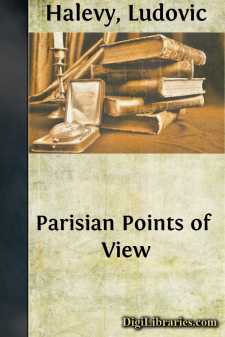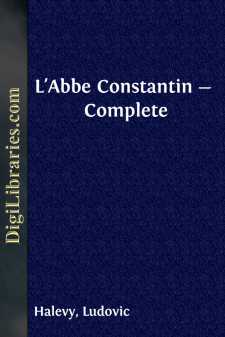Categories
- Antiques & Collectibles 13
- Architecture 36
- Art 48
- Bibles 22
- Biography & Autobiography 813
- Body, Mind & Spirit 142
- Business & Economics 28
- Children's Books 14
- Children's Fiction 11
- Computers 4
- Cooking 94
- Crafts & Hobbies 4
- Drama 346
- Education 46
- Family & Relationships 57
- Fiction 11829
- Games 19
- Gardening 17
- Health & Fitness 34
- History 1377
- House & Home 1
- Humor 147
- Juvenile Fiction 1873
- Juvenile Nonfiction 202
- Language Arts & Disciplines 88
- Law 16
- Literary Collections 686
- Literary Criticism 179
- Mathematics 13
- Medical 41
- Music 40
- Nature 179
- Non-Classifiable 1768
- Performing Arts 7
- Periodicals 1453
- Philosophy 64
- Photography 2
- Poetry 896
- Political Science 203
- Psychology 42
- Reference 154
- Religion 513
- Science 126
- Self-Help 84
- Social Science 81
- Sports & Recreation 34
- Study Aids 3
- Technology & Engineering 59
- Transportation 23
- Travel 463
- True Crime 29
Parisian Points of View
by: Ludovic Halevy
Description:
Excerpt
THE SHORT STORIES OF M. LUDOVIC HALÉVY
To most American readers of fiction I fancy that M. Ludovic Halévy is known chiefly, if not solely, as the author of that most charming of modern French novels, The Abbé Constantin. Some of these readers may have disliked this or that novel of M. Zola's because of its bad moral, and this or that novel of M. Ohnet's because of its bad taste, and all of them were delighted to discover in M. Halévy's interesting and artistic work a story written by a French gentleman for young ladies. Here and there a scoffer might sneer at the tale of the old French priest and the young women from Canada as innocuous and saccharine; but the story of the good Abbé Constantin and of his nephew, and of the girl the nephew loved in spite of her American millions—this story had the rare good fortune of pleasing at once the broad public of indiscriminate readers of fiction and the narrower circle of real lovers of literature. Artificial the atmosphere of the tale might be, but it was with an artifice at once delicate and delicious; and the tale itself won its way into the hearts of the women of America as it had into the hearts of the women of France.
There is even a legend—although how solid a foundation it may have in fact I do not dare to discuss—there is a legend that the lady-superior of a certain convent near Paris was so fascinated by The Abbé Constantin, and so thoroughly convinced of the piety of its author, that she ordered all his other works, receiving in due season the lively volumes wherein are recorded the sayings and doings of Monsieur and Madame Cardinal, and of the two lovely daughters of Monsieur and Madame Cardinal. To note that these very amusing studies of certain aspects of life in a modern capital originally appeared in that extraordinary journal, La Vie Parisienne—now sadly degenerate—is enough to indicate that they are not precisely what the good lady-superior expected to receive. We may not say that La Famille Cardinal is one of the books every gentleman's library should be without; but to appreciate its value requires a far different knowledge of the world and of its wickedness than is needed to understand The Abbé Constantin.
Yet the picture of the good priest and the portraits of the little Cardinals are the work of the same hand, plainly enough. In both of these books, as in Criquette (M. Halévy's only other novel), as in A Marriage for Love, and the twoscore other short stories he has written during the past thirty years, there are the same artistic qualities, the same sharpness of vision, the same gentle irony, the same constructive skill, and the same dramatic touch. It is to be remembered always that the author of L'Abbé Constantin is also the half-author of "Froufrou" and of "Tricoche et Cacolet," as well as of the librettos of "La Belle Hélène" and of "La Grande Duchesse de Gerolstein."
In the two novels, as in the twoscore short stories and sketches—the contes and the nouvelles which are now spring-like idyls and now wintry episodes, now sombre etchings and now gayly-colored pastels—in all the works of the story-teller we see the firm grasp of the dramatist....



